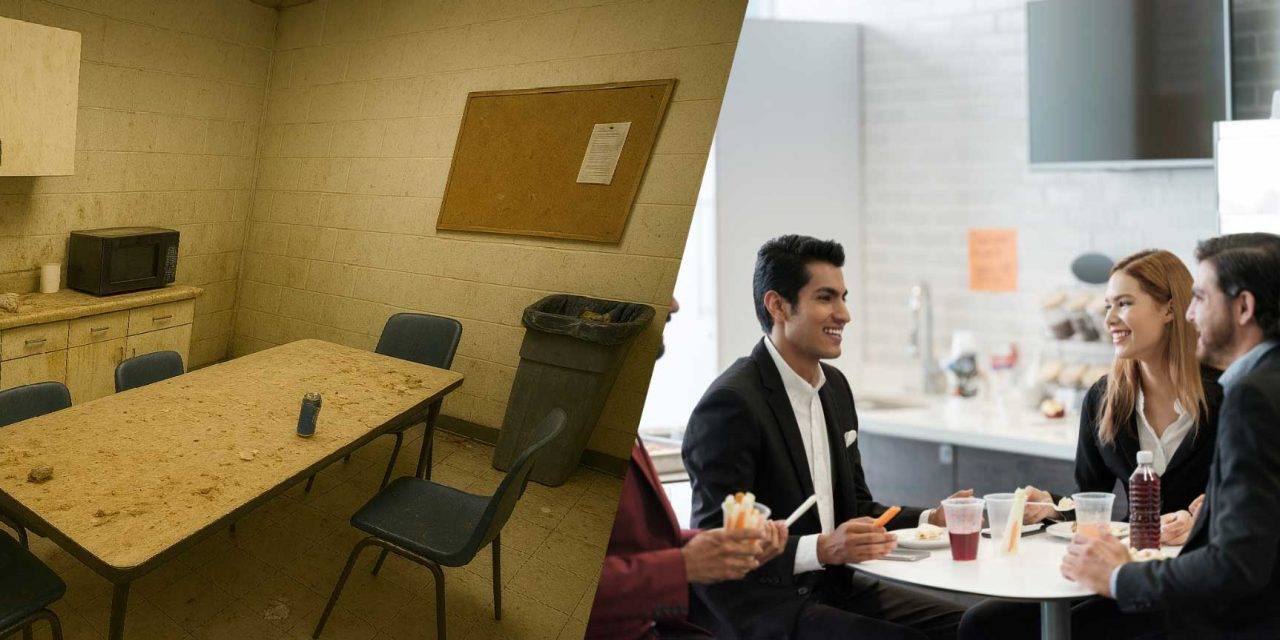The Union, your union, always has its members’ safety as a top priority. We understand the importance of being able to go to work and carry out your duties in a safe manner. This goes for your employers too. They have a duty under the Work Health and Safety Act to ensure work environments and facilities are without risk to health and safety.
According to the NSW Government Code of Practice – Managing the work Environment and Facilities, your employers’ primary duty requires, so far as reasonably practicable, that they:
- Provide adequate and accessible facilities for the welfare of workers
- Provide and maintain work environments, plant and structure and systems of work without risks to health and safety
- Ensure the safe use, handling and storage of plant, structures and substances
- Provide access to facilities for workers such as toilets, drinking water and washing and eating facilities
- Provide information, training, instruction and supervision that is needed to protect all persons from health and safety risks that may arise from the work carried out by council, and
- Monitor the health of workers and the conditions of the workplace for the purpose of preventing illness or injury.
Your employer must monitor the conditions of the work environment, including facilities, to ensure the health and safety of workers. The conditions of the workplace should be monitored on a regular basis, particularly when there are changes to the type of work being done or to the workforce composition.
Clean and safe
The work environment must be maintained so that it remains in a clean and safe condition. Broken or damaged furniture, fixtures and fittings, including chairs, plumbing, air-conditioning and lighting should be replaced or repaired promptly. Facilities must be clean, safe, accessible and in good working order. Consumable items, including soap and toilet paper, should be replenished regularly. Workplaces and facilities should be cleaned regularly taking into account the type of work performed, the likelihood of contamination, the number of workers using them, including during shift work, and the type of facility, such as eating areas, toilets, handbasins and showers.
Access to clean toilets must be provided for all workers while they are at work. Where reasonably practicable, toilet facilities should be provided for workers, rather than relying on access to external public toilets. For workplaces within buildings, the National Construction Code of Australia sets out the ratio of toilets to the number of workers, and the specifications for toilets. Generally, separate toilets should be provided in workplaces where there are both male and female workers.
However, one unisex toilet may be provided in workplaces with both male and female workers where: − the total number of people who normally work at the workplace is 10 or fewer, and − there are two or fewer workers of one gender. For example, a workplace with two male and eight female workers or with one female and three male workers could have a unisex toilet because there are 10 or fewer workers in total and two or fewer workers of one gender. A unisex toilet should include one closet pan, one washbasin and means for disposing of sanitary items.
Where it is not reasonably practicable to provide access to permanent toilets, for example short-term temporary workplaces and workplaces in remote areas, portable toilets should be provided. Portable toilets should be located in a secure place with safe access. They should be installed so they do not fall over or become unstable and should be serviced regularly to keep them clean.
Union Audit
The Union recently completed an audit in the North West of toilet facilities available at all worksites in its councils. This also included remote worksites. This came about due to the Roads Construction and Maintenance Vocational Group identifying that there were changes in the demographics in the outdoor workforce, mainly with the inclusion of more females now seeking employment within the roads construction and maintenance sector.
As well as toilets, your employer is required to provide;
- drinking water
- hand washing facilities
- eating facilities, and
- personal storage.
For a more detailed look into what is required under the code, please visit
If you believe your employer is not complying with the Managing the Work Environment and Facilities Code of Practice, please contact your local HSR, Union Delegate or Union Organiser.


